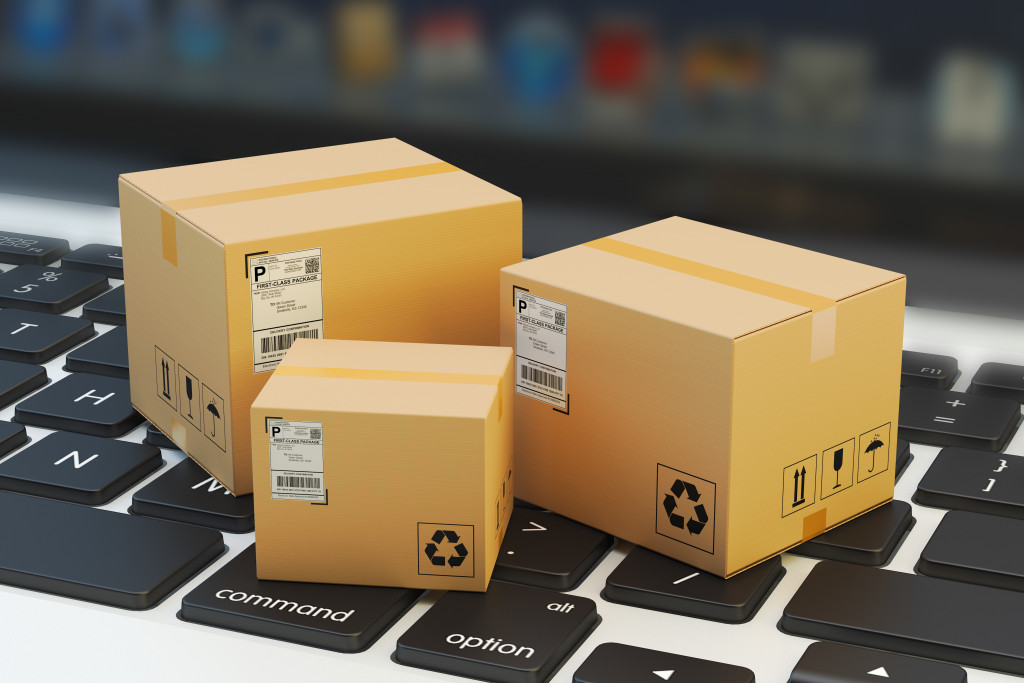Shipping products is an integral part of any company, especially in today’s digital world. Your customers must receive their orders in a timely and safe manner. But what happens if something goes wrong during the shipping process? You could be left dealing with damaged freight or delayed deliveries, leading to unhappy customers and lost business. Fortunately, there are ways you can use technology to minimize these risks and ensure success. Look at ways to fail-proof your company’s products during shipping with technology.
GPS Tracking Devices
GPS tracking devices give businesses real-time visibility into their shipments’ locations throughout the shipping process. It allows companies to track their packages’ every move and anticipate potential issues.
These devices help them monitor the progress of shipments, so they can update customers on delivery times. Also, they allow businesses to track their freight better and know when it arrives at its destination.
Unlike before, GPS devices also eliminate the need for manual tracking and allow businesses to reduce their costs significantly.
Temperature Monitoring Devices
Temperature monitoring devices are essential for companies that ship food or other temperature-sensitive items. They provide businesses with accurate snapshots of how their products have been affected during transit from one location to another.
Temperature is an essential factor that can significantly impact the quality and safety of goods, so these devices allow businesses to monitor them closely. Not only do they ensure their products remain at optimal temperatures, but they also assure customers that their items are in good condition.
In addition, these monitoring devices keep businesses updated on any environmental changes or disruptions. In turn, they can make the necessary adjustments to their shipping processes.
Secured Packaging
Packaging plays a major role in the success of a shipment. Ensuring your products are well-secured and protected during transit is essential for avoiding damages or delays. So, investing in a customized box design for your products is advisable.
Furthermore, these packagings are more secure than generic boxes as they offer additional layers of protection. They are usually made with corrugated cardboard, which provides cushion and keeps your products safe from external elements.
These boxes also help reduce costs for companies as your products fit perfectly in them. They are also more lightweight and stackable, leading to improved logistics performance.

RFID Tags
RFID tags are small radio frequency identification chips that allow businesses to track their shipments in real time. These are ideal for high-value items like electronics or luxury goods where security is paramount.
These tags prevent theft by providing detailed information about each shipment’s location. This is so that businesses can be alerted if suspicious activity is detected while it’s still in transit—allowing them to take quick action if needed.
Moreover, RFID tags help companies to identify their shipments faster and more efficiently. This can save time and money for businesses as they don’t have to manually check each package for its destination or contents.
Artificial Intelligence or AI Systems
AI systems enable companies to automate their shipping processes. They route packages through different trucking routes or warehouses based on current traffic patterns or weather conditions. Thus, eliminating the need for manual work hours and manually calculating these variables daily.
Furthermore, AI systems enable businesses to quickly identify issues related to freight damage or delays. For instance, they can detect when a shipment is likely delayed. They also know if there are any changes in the delivery schedule. With this information at their fingertips, businesses can quickly adjust accordingly.
Additionally, these systems can also identify potential customer service issues and offer proactive solutions to address them.
Leverage Digital Signature
Digital signatures are a great way to ensure that customers receive their items in the condition they expect.
You can integrate it into your shipping process and require customers to sign off on deliveries. This helps businesses prove that their products were delivered in the same condition they were sent. Also, they can quickly verify the delivery status upon receipt of goods.
Moreover, digital signatures also provide proof of ownership regarding disputes between customers and shippers. With this evidence, companies can better protect themselves from any legal issues surrounding shipments.
No company wants its customers disappointed due to damaged freight or delayed deliveries caused by shipping errors. Fortunately, there are several ways you can use technology to help fail-proof your company’s products during shipping. GPS tracking devices, temperature monitoring devices, secured packaging, RFID tags, AI systems, and digital signature offer unique benefits to ensure successful deliveries while minimizing cost. This ensures that your customers get what they ordered in perfect condition every time. With these technologies in place, you’ll be well on your way toward achieving shipping success!


